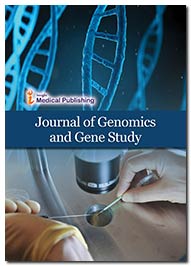Gender effect on the genotype-phenotype correlation in congenital long QT syndrome
Hector Barajas-Martinez *
Corporacion Genetica Global (Global Genetics Corporation), USA/MEXICO
*Corresponding Author:Hector Barajas-Martinez
Corporacion Genetica Global (Global Genetics Corporation), USA/MEXICO
Abstract
In long QT syndrome (LQTS), female shows a higher risk of a cardiac event compared with a male in previous studies. However, the real nature about the difference between male and female is still lacking. In this investigation, we sought to comprehensively compare the genotype-phenotype correlation between sexes in genotyped LQTS patients. We enrolled 603 congenital LQTS cases from 6 registered centers (65.8% females; 72.9% probands; average ages at diagnosis, 21.8±17.8 y/o). Participants provided written informed consent, and clinical characteristics were recorded. All patients underwent at least LQT1-3 gene screening. Seventeen reported LQTS and other inherited arrhythmia candidate genes were sequenced with next-generation sequencing (NGS) in 306 (51%) cases. Major cardiac events (MCE) were defined as (aborted) sudden cardiac death, and/or documented malignant arrhythmias. Cardiac symptom includes syncope and MCE.
Biography
Hector, Barajas-Martinez (PhD in Human Genetics and Fellow of Heart Rhythm Society) is currently the CEO of Global Genetics Corporation and Scientific Chief Officer (SCO) of CAMDIA MEDICAL LLC in Ventura, California. He is a new Special Section Editor of Electrocardiology and Genetics/Inherited Arrhythmia Disorders below to peer review Journal of Electrocardiology. He was a Clinical Director of Molecular Genetics/ Research Scientist at Molecular Genetics & Experimental Cardiology, Masonic Medical Research Laboratory in Utica, New York USA. Over the last 20 years or more he has been fully committed to advancing translational research in the field of genetics in cardiac arrhythmias. His new role in the Molecular Genetics and Functional Genomics Programs is to establish new strategies for molecular genetic approaches to identified new genetic markers in Inherited Cardiac Death Syndromes, Neuronal and Cancer diseases. He played a key role in the discovery and characterization of more than 8 new genes related to Brugada, Early Repolarization, Short and Long QT Syndromes and Hypertrophic and Dilated Cardiomyopathies, which were published in top tier scientific journals. We are interested in helping to identify novel gene or multiple genes mutations linked to inherited cardiac, diabetes, obesity, cancer and neuropathology syndromes associated with ion channels and structural gene-diseases.
Open Access Journals
- Aquaculture & Veterinary Science
- Chemistry & Chemical Sciences
- Clinical Sciences
- Engineering
- General Science
- Genetics & Molecular Biology
- Health Care & Nursing
- Immunology & Microbiology
- Materials Science
- Mathematics & Physics
- Medical Sciences
- Neurology & Psychiatry
- Oncology & Cancer Science
- Pharmaceutical Sciences
